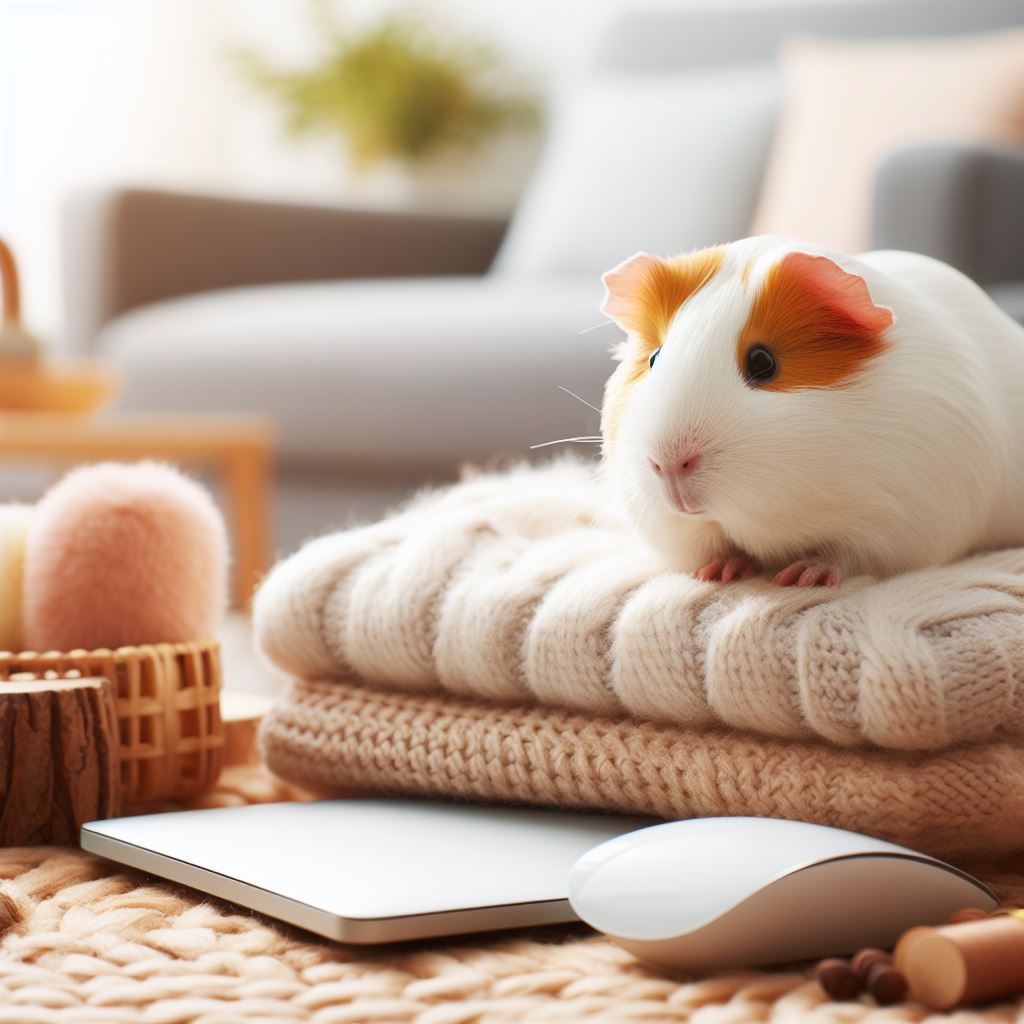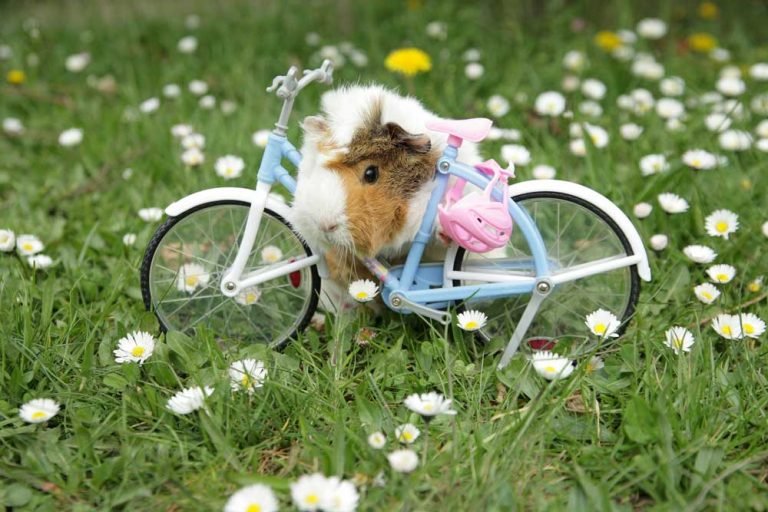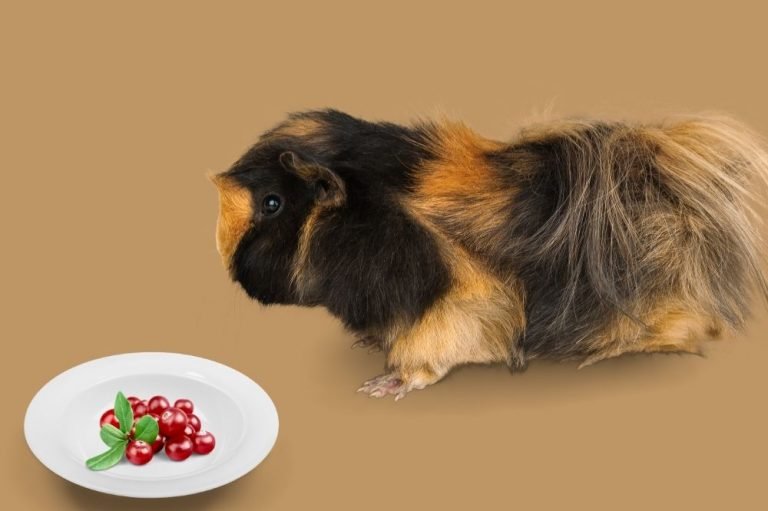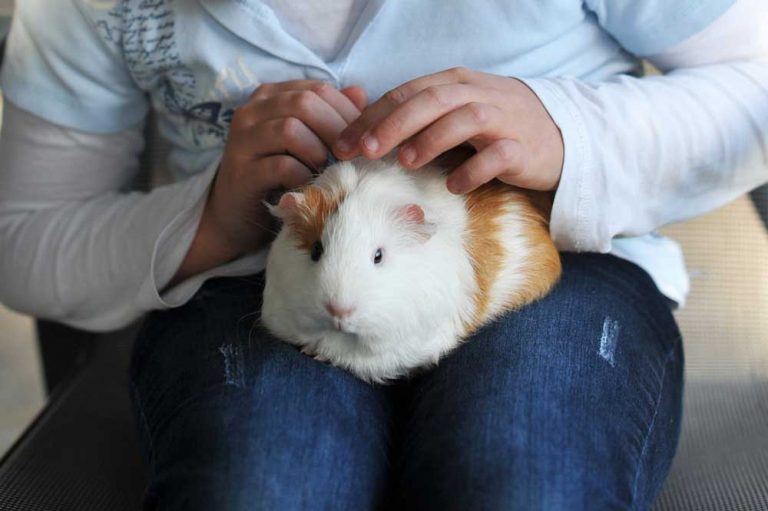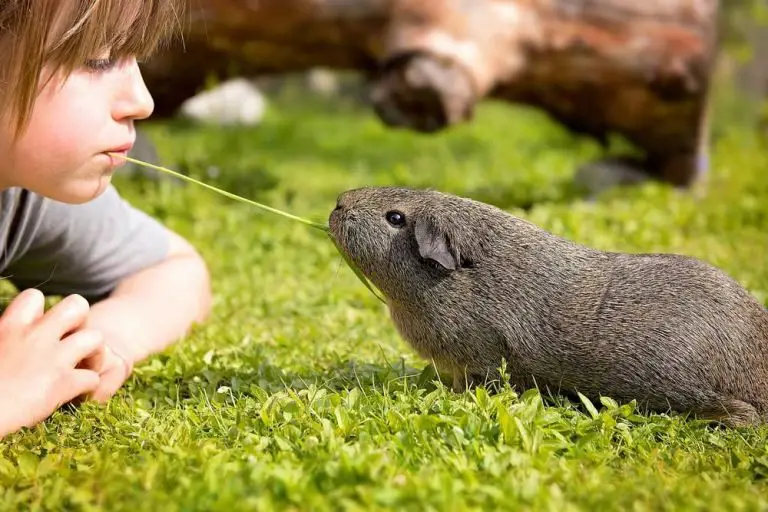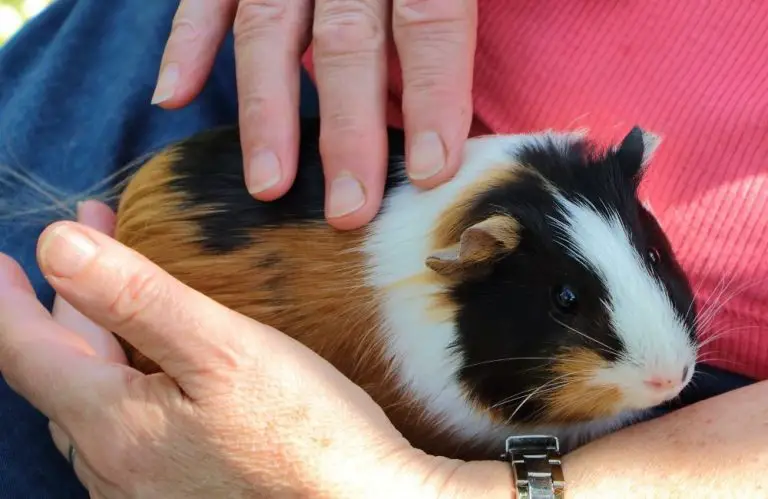Can Guinea Pigs Live Alone? (Is That OK?)
Guinea pigs are social animals and thrive when they have companionship. However, there has been a long-standing debate on whether guinea pigs can live alone.
In this blog post, we will dive deep into understanding guinea pig loneliness, the role of companionship in their lives, and how to recognize and address boredom in these furry creatures.
Guinea pigs who live alone will experience loneliness, and boredom and more than likely develop behavioral problems.
To help you make an informed decision, we will discuss when it is safe for a guinea pig to live alone and what changes in behavior you can expect with or without companionship.
Finally, we’ll share some expert advice from vets on preventive measures to ensure the well-being of your solo guinea pig.
Understanding Guinea Pig Loneliness
Guinea pigs are social animals, thriving in the company of others. Solitary piggies can experience loneliness and boredom, affecting their mental health.
Companionship is crucial for their well-being, as they naturally live in herds in the wild. Considering the impact of loneliness is important to maintain a healthy guinea pig. Understanding their behavior helps them recognize signs of loneliness.
Pairing them up with another guinea pig or adopting from rescue centers ensures good friends for a healthy and happy cavy.
Without a hutch buddy, a cavy is likely to suffer from boredom and loneliness, which in turn can lead to depression, behavioral problems, and even health issues.

The Impact of Solitude on Guinea Pigs
Solitary guinea pigs may display signs of stress and depression. The negative impact of loneliness on a guinea pig’s behavior and overall quality of life cannot be underestimated.
Both their physical and mental health can deteriorate with the lack of companionship. Without social interaction, guinea pigs tend to become withdrawn and less active.
However, providing a companion can help alleviate these negative effects, ensuring a healthier and happier life for these furry piggies. Two or more guinea pigs will forage and explore the hutch, chase each other, and if you’re lucky, popcorn together.
Recognizing Signs of Loneliness in Guinea Pigs
Recognizing signs of loneliness in guinea pigs is crucial for ensuring their well-being. Loss of appetite or weight loss can serve as indicators of loneliness in these social animals.
Additionally, excessive grooming or self-destructive behaviors may manifest as a response to loneliness. If a guinea pig becomes more vocal or displays anxious behavior, it could be a sign of loneliness.
A decrease in activity or playfulness might also suggest that a guinea pig is experiencing loneliness. By observing changes in behavior and mood, pet owners can identify if their guinea pig is feeling lonely.
The Role of Companionship in Guinea Pigs’ Lives
Companionship plays a vital role in the lives of guinea pigs. It provides them with a sense of security and comfort, reducing loneliness and promoting overall well-being.
Having a cage mate allows guinea pigs to establish strong bonds and engage in social activities and play. This companionship also stimulates their minds, preventing boredom and potential behavioral problems.
Pairing compatible guinea pigs is a great way to ensure they have good friends and lead happy and healthy lives.
Why Guinea Pigs Need Companionship
Guinea pigs are social animals that have evolved to live in groups. Companionship allows them to engage in natural behaviors and social interactions, providing them with a source of comfort and emotional support.
Having a companion also reduces stress and loneliness, promoting a healthier and happier life for guinea pigs.
Pairing compatible guinea pigs is a great way to ensure they have good friends to interact with. The companionship between guinea pigs prevents behavioral problems and provides them with peace of mind.
Recognizing and Addressing Boredom in Guinea Pigs
Boredom in guinea pigs can have a detrimental impact on their mental health and overall well-being.
To prevent boredom, it is important to provide a stimulating environment for these piggies. Interactive toys and puzzles can keep them mentally engaged and entertained. Regular playtime and interaction with their owners can also alleviate boredom.
Additionally, offering a variety of activities and hiding spots can help combat boredom and keep guinea pigs happy and mentally stimulated. By addressing their boredom, we can ensure that our furry friends lead enriched and fulfilling lives.
Activities to Alleviate Boredom in Cavies
To alleviate boredom in cavies, providing tunnels and mazes for them to explore is beneficial. Additionally, offering chew toys and puzzle feeders can keep guinea pigs mentally stimulated.
Creating an outdoor play area or providing supervised access to grass can also provide enrichment. To prevent monotony, it is advisable to rotate toys and rearrange the cage.
Lastly, engaging in interactive play sessions with guinea pigs can help alleviate their boredom.
Optimal Pairings for Guinea Pigs
Female guinea pigs often form good friendships with other females, providing optimal companionship for each other.
It’s also possible to pair two male guinea pigs together, but it’s important to introduce them at a young age and have them neutered to avoid territorial issues. If considering a male and female pairing, careful consideration should be given to prevent breeding.
Rescue centers can provide guidance on suitable pairings based on the guinea pigs’ personalities. Ultimately, ensuring compatibility and a close bond between guinea pigs is crucial for their long-term happiness.
The Compatibility between Boars and Sows
When introducing a pair of guinea pigs, it’s important to consider their behavior and the compatibility between boars and sows.
The bonding process requires patience and supervision to ensure a healthy relationship between the piggies. It is normal for guinea pigs to show aggression towards each other during this process, but with proper management, they can become good friends.
Neutering both male guinea pigs and female guinea pigs is recommended to reduce the risk of unwanted pregnancies and aggressive behaviors. By following these steps, you can provide a peaceful and harmonious environment for your cavies.
When is it Safe for a Guinea Pig to Live Alone?
While guinea pigs are social animals, there may be circumstances where it is safe for them to live alone. However, it is generally not recommended as they thrive with companionship.
Only if all attempts to bond them with a compatible companion have failed should a guinea pig live alone.
Circumstances Where a Solo Guinea Pig Life is Acceptable
In certain circumstances, it may be acceptable for a single piggy to live alone. This includes situations where they have had negative experiences with other guinea pigs or display aggressive tendencies.
Additionally, if a guinea pig has experienced the loss of a companion, living alone temporarily may be necessary until a suitable match can be found. Solo guinea pigs may also be more suitable for households with limited space or resources.
Some guinea pigs may even prefer to live alone due to their individual personality traits. Lastly, guinea pigs rescued from abusive situations may need to initially live alone to recover and regain their trust in humans.
Vet’s Advice on Guinea Pigs Living Solo
Veterinarians generally recommend that guinea pigs live in pairs or small groups for their overall well-being.
If a guinea pig needs to live alone, it is important to provide them with extra attention and enrichment to prevent boredom and loneliness. Regular veterinary check-ups are crucial for monitoring the health and happiness of a solo guinea pig.
Vets can provide guidance on proper diet, exercise, and mental stimulation for guinea pigs living alone. Seeking advice from a veterinarian can help ensure the best possible care for a single guinea pig.
Preventive Measures to Ensure the Well-being of a Solo Guinea Pig
To ensure the well-being of a solo guinea pig, it is important to provide them with ample space, such as a spacious cage or enclosure. This allows them to move around freely and engage in natural behaviors.
Offering a variety of stimulating toys and activities can help prevent boredom and promote their mental health. Regular interactions and handling with the guinea pig can help fulfill their need for companionship and socialization.
It is crucial to monitor their diet and ensure they receive a balanced and nutritious meal for their overall health.
Creating a safe and comfortable environment, free from potential hazards or stressors, is also vital for their well-being. According to the Humane Society, two guinea pigs need a minimum of 10 square feet of space to run around and stay active.
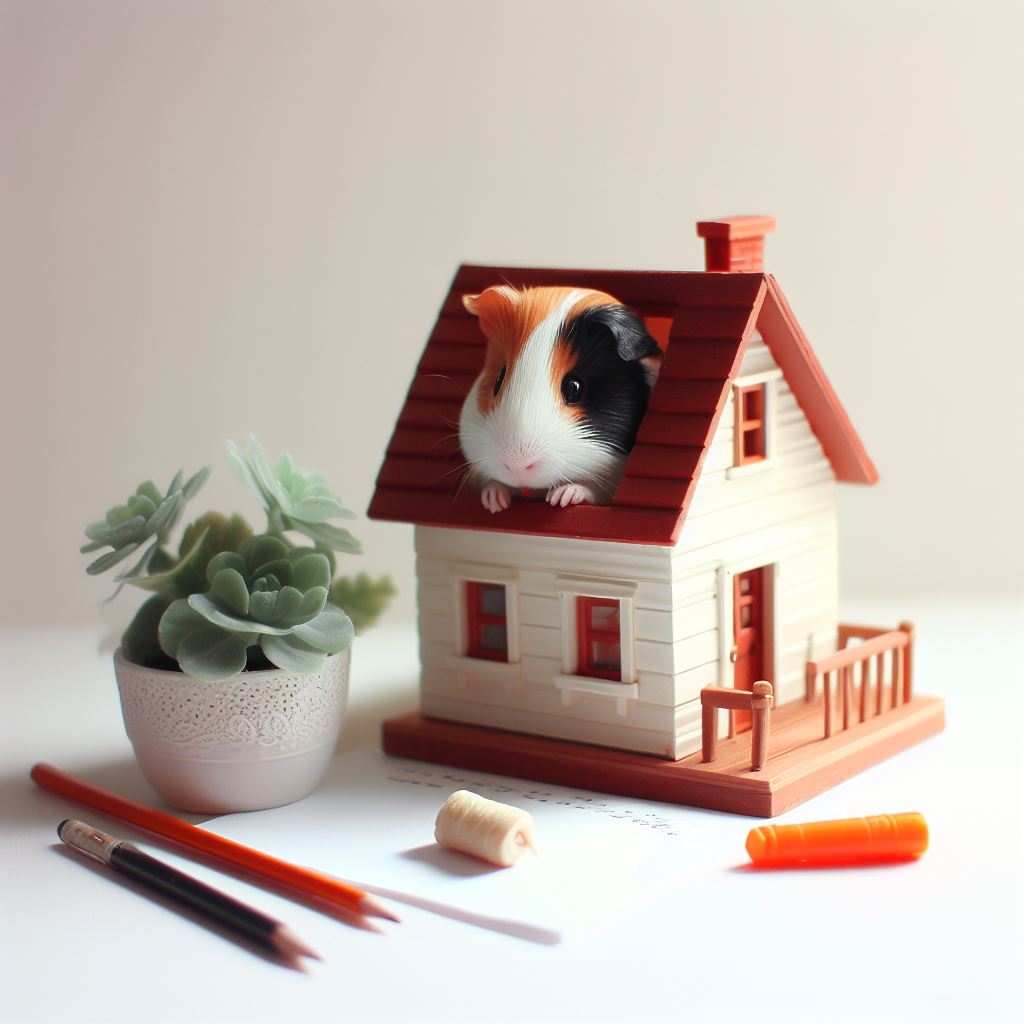
How Does a Guinea Pig’s Behaviour Change with and Without Companionship?
Companionship greatly impacts a guinea pig’s behavior. With a companion, they tend to be more active, vocal, and playful.
Without companionship, they may become withdrawn, exhibit signs of depression, and show reduced interest in their surroundings.
Companionship helps reduce stress and anxiety, resulting in a calmer and happier disposition. Solo guinea pigs may develop behavioral issues due to lack of stimulation.
Conclusion
Guinea pigs are social animals that thrive in the company of their own kind. While it is possible for a guinea pig to live alone, it is not ideal for their overall well-being and can lead to loneliness and boredom.
Guinea pigs need companionship to fulfill their social and emotional needs. It is important to recognize the signs of loneliness and take steps to address it by providing suitable companionship or implementing enrichment activities to alleviate boredom.
If you are unsure about the best pairing for your guinea pig or have concerns about their well-being, consult with a veterinarian who specializes in small animals. They can provide guidance and advice tailored to your guinea pig’s specific needs.

